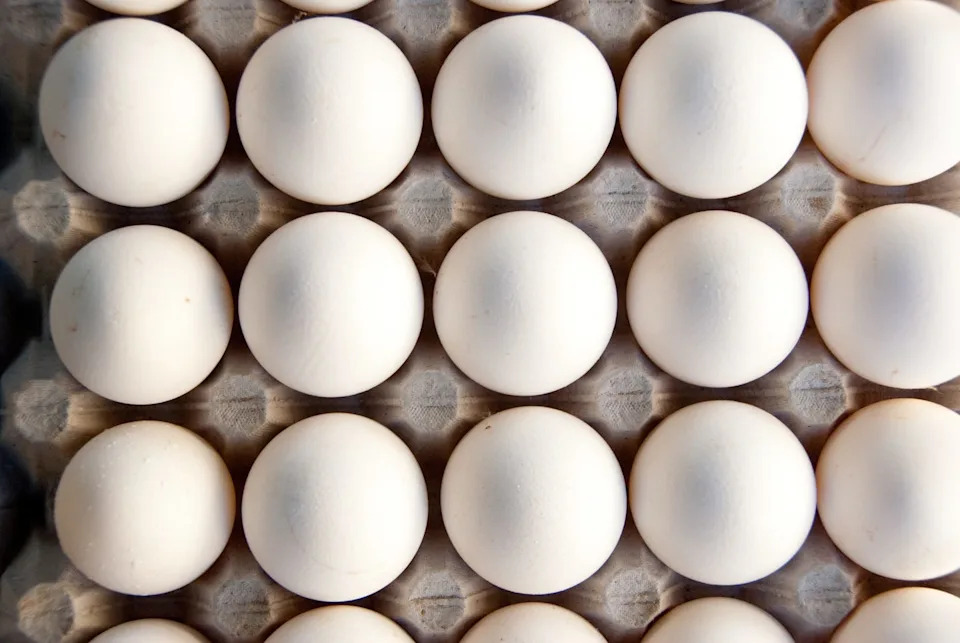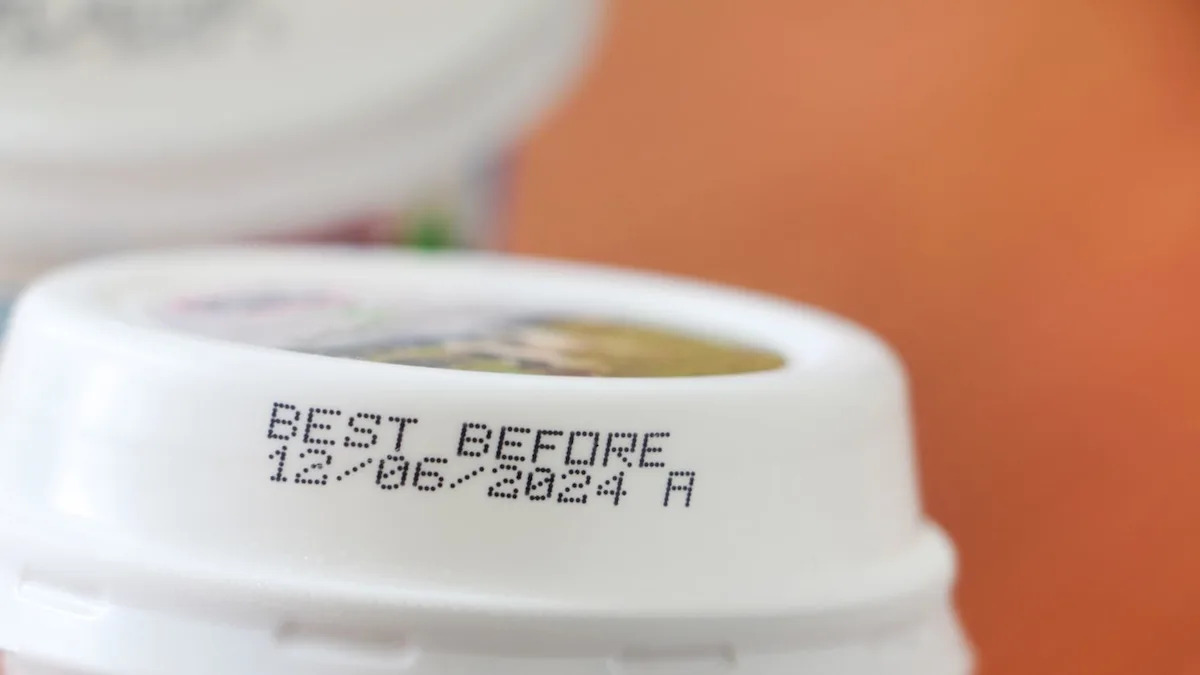“Hearst Magazines and Yahoo may earn commission or revenue on some items through these links.”
Date labels on food aren’t standardized, and different phrases can mean different things.
A food-safety expert says that smell, texture, and flavor are often better indicators of spoilage than dates.
Still, some foods should never be eaten past the date—think deli meat, raw fish, infant formula, soft cheeses, and certain cooking oils.
Take a look around your kitchen and most packaged foods will have some kind of date: “sell by,” “best by,” “use by,” and more—but they don’t all mean the same thing or automatically signal that a food is unsafe. With grocery prices high and 30 to 40 percent of the U.S. food supply going to waste, do you really need to toss that yogurt that’s a few days past its expiration?
Here’s what you need to know about these so-called expiration labels, plus what the food experts say you most definitely shouldn’t eat after it’s expired.
The Truth About Expiration Date Labels
“Generally speaking, expiration dates in the U.S. don’t mean a lot,” says Laurie Beyranevand, director of the Center for Agriculture and Food Systems at Vermont Law School. “What’s even more confusing is that they’re written in a few different ways on a product label.”
You might see a “best before” date on one package and a “sell by” date on another. Typically, these labels indicate when manufacturers believe quality may start to decline, and they rarely address a product’s safety, Beyranevand says. Expiration dates on food items also tend to be conservative, adds food safety attorney Jory Lange, leading many of us to throw away a lot of perfectly safe food out of fear that it’s rotten.
As long as you store your groceries properly, you can still eat or use foods after their expiration dates, says Janilyn Hutchings, CP-FS, a food scientist with StateFoodSafety. “Better indicators for whether food has gone bad are ‘off’ smells, textures, and flavors,” she notes.
Foods You Shouldn’t Eat After They Expire
That said, some foods are at a higher risk of losing quality or carrying harmful pathogens. You don’t need to obey every “best by” date, but here are 13 foods that experts say you should skip once they’re past their date.
Infant Formula
Federal law doesn’t require food manufacturers to provide expiration dates—except when it comes to infant formula, says Hutchings. After the expiration date, nutrient levels may drop, which is a problem because the Food Safety and Inspection Service (FSIS) requires that the nutrients in the formula match those listed on the label. The concern here is less about immediate safety and more about avoiding nutrient deficiencies in infants.
Meat
Ground beef, steak, and chicken can sometimes be safe to eat after the use-by date, but be extra cautious and look for signs of spoilage, such as unusual smells, discoloration, or visible mold, Hutchings says.
You can also use the fingerprint test for chicken: “If you press down on the chicken and it bounces back, it’s still good,” she notes. “If the imprint of your finger stays, it’s likely not good and should be thrown away.”
Eggs 
getty images
Eggs have become super expensive, so tossing even one feels wasteful. While they may be fine past their use-by date, Hutchings recommends performing the float test to be sure. Just fill a bowl with water and drop the egg in: if it sinks, it’s fresh; if it stands up, it’s older but likely okay; if it floats, it’s too old.
A spoiled egg will also smell when cracked, per FSIS. Because eggs can carry salmonella, a bacteria that can make you sick, your best bet is to store them in the original carton and aim for use within three weeks, according to the Food and Drug Administration.
Soft Cheeses
Hard cheeses (like a block of cheddar, for instance) can sometimes be salvaged by cutting away mold, but soft cheeses—think: cream cheese, ricotta, etc.—and crumbled varieties are different. Mold threads can spread and contaminate throughout the cheese, extending beyond what is visible. Harmful bacteria like Listeria, Brucella, Salmonella, and E. coli can grow with the mold, the Mayo Clinic notes, so once soft cheese is moldy or expired, it’s a no.
Deli Meat
Moisture plus low salt speeds up spoilage in deli meats, while dry foods such as rice and pasta enjoy longer shelf lives, says Lange. “We wouldn’t recommend eating high-moisture, low-salt items past their expiration dates because of bacteria growth that can lead to food poisoning,” he says. If your cold cuts smell sour or look slimy, it’s time to toss them.
Fiddleheads
You’re probably not cooking with fiddleheads often, but keep this in mind if you do: these tightly coiled, asparagus-like ferns can produce toxins that make you sick if eaten past their expiration dates, Lange says.
Strawberries
Kseniya Sharapova – Getty Images
One of summer’s biggest bummers is opening your fridge and discovering your strawberries in a furry white coat. If you see a moldy berry, remove it and any fruit it touched. Mold spreads quickly on soft fruits, so it’s important to check the rest and discard if there are any signs of spoilage.
Some molds can cause illness or trigger allergic reactions. If your berries are nearing their expiration date, pop them in the freezer to extend their shelf life and use them later in smoothies or cooked desserts, says professional chef Norah Clark.
Ground Spices
It’s not a food-safety concern, but expired spices mean your meals aren’t as flavorful as they should be, Clark says. “Some spices that lose flavor after expiration include ground cinnamon, paprika, and ground cumin,” she notes.
Store your spices in airtight containers, away from heat and direct sunlight, to preserve their optimal flavor.
Restaurant Leftovers
getty images
There’s no printed expiration date on your restaurant’s to-go container, but timing still matters. Leftovers often sit at room temperature while you travel home, giving bacteria a start to grow and multiply, says dietitian Hannah Byrne, MS, RDN.
“While refrigeration can slow down the bacterial growth, it doesn’t stop it completely,” she says. “Plus, some restaurant leftovers have a variety of different food groups in them, and they all have different expiration dates on them, so for safety, it’s best to consume them within three to four days.”
The taste and texture also change, too, as they tend to dry out and lose flavor.
Raw Fish
If you pick up raw fish from your local store, make sure it’s stored on plenty of ice. If it feels dry or mushy, it’s likely old and not safe to eat. Once home, refrigerate seafood for one to two days before cooking or freezing it, as recommended by the FDA. If seafood spoils, it’ll smell sour, strongly fishy, or like ammonia, which becomes stronger after cooking. When in doubt, throw it out.
Leafy Greens 
Ivan Pantic – Getty Images
That jumbo bag of spinach seemed like a good idea—until it wasn’t. Once past date, leafy greens like spinach and kale turn bitter, Byrne says, and eating expired greens puts you at risk of foodborne illness. If they’re edging toward expiration, blend them to use in a green smoothie recipe.
Nuts
High in unsaturated fats, nuts tend to go rancid fast, says dietitian Kelsey Kunik, RDN, and nutrition advisor for Zenmaster Wellness. Most last around four to six months at room temperature when stored in an airtight container and away from light.
“When the oils oxidize, the nut produces a bitter or sour taste, letting you know it’s gone rancid,” Kunik says. “While it’s safe to eat nuts that have gone bad in small amounts, you won’t want to because of the bad taste.”
Cooking Oils
Unopened cooking oils generally last about a year; once opened, they last approximately six months, says Tracee Yablon-Brenner, R.D. She recommends storing cooking oils in dark glass away from light and heat. If it tastes bitter, it’s rancid and should be thrown away.
Unprocessed oils, such as extra-virgin olive oil, lose their beneficial polyphenols as they age, Kunik adds, and the flavor suffers.
You Might Also Like

